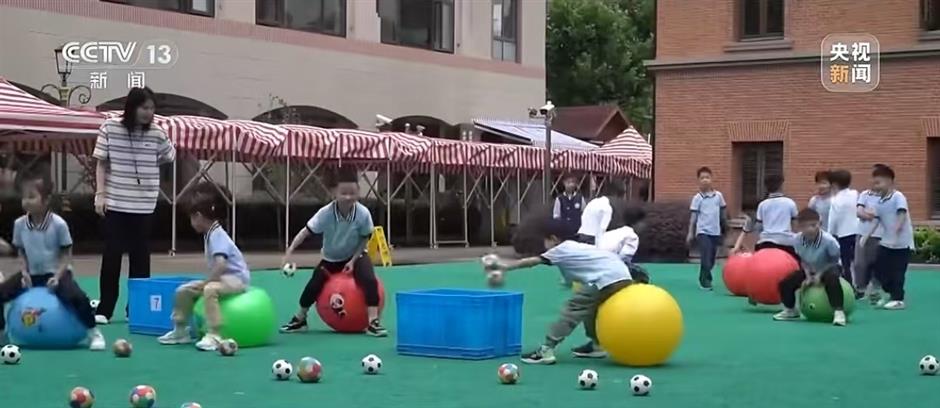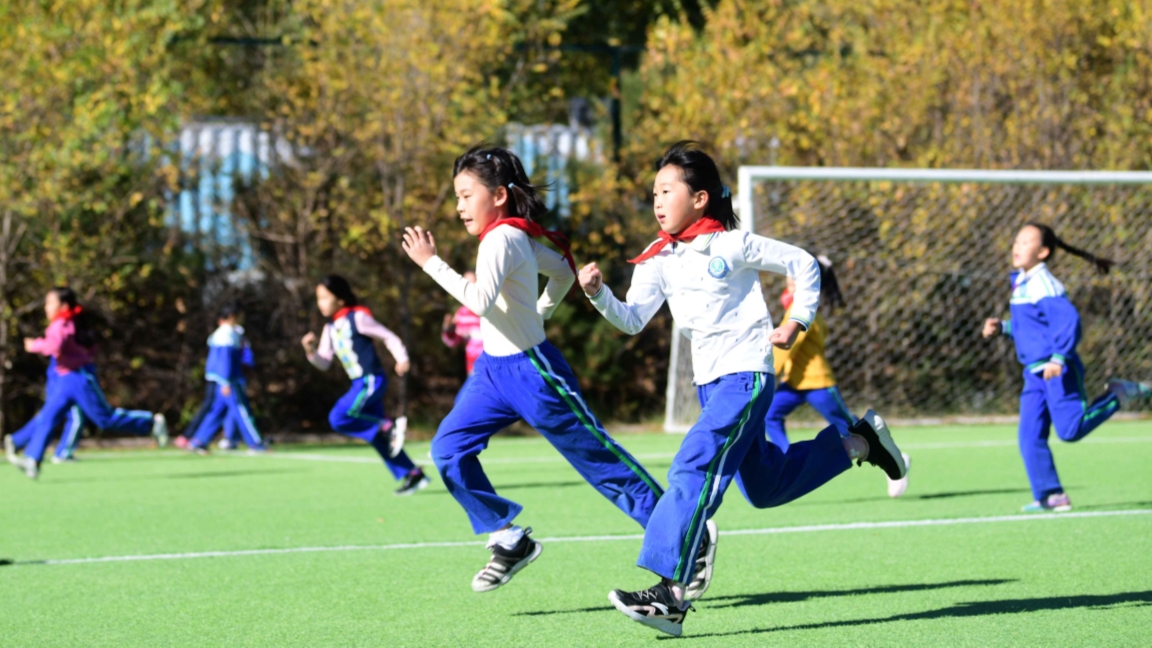
As I walked toward a physical exam center in downtown Shanghai on the early morning of September 1, I ran into a group of primary school students going to class on the first day of the autumn semester.
Notably, the pupils were empty-handed, as their parents or grandparents carried the bulky school bags for them. And surprisingly, many of them wore glasses.
I had long been worried about students suffering from myopia at such a young age, and what I saw outside a major elementary school reinforced my concern. When I was their age (back in the 1970s), I never had such a heavy school bag and few students of my generation developed myopia during early childhood.
China's latest national survey on the prevalence of myopia, published last year, shows the overall myopia rate of Chinese children and adolescents reached 51.9 percent in 2022, including 36.7 percent for primary school students, 71.4 percent for junior middle school students, and 81.2 percent for high school students. These figures are appalling and should force everyone to think hard: Shall we compromise our health in pursuit of so-called high academic test scores?
Good news is that, beginning from September 1, students in Shanghai's primary and secondary schools will have to complete at least two hours of sports activities on campus every day, including outdoor exercises. It's a compulsory requirement.
Shanghai education authorities made the landmark decision in June, and a few schools began to experiment with the idea immediately afterwards, including dedicating Wednesday afternoons to sports activities and creating mini playgrounds on rooftops.

A student from a local primary school says he enjoys outdoor exercises.
Before June, Shanghai, like many other cities or regions across China, required students to complete two hours of exercise both on and off campus. But it turned out that off-campus exercise was often hard to monitor, hence its undesirable effect.
In January, China released a master plan for building a strong education system by 2035. It again stipulates that students at primary and secondary schools have at least two hours of sports activities every day, so as to achieve an effective control over myopia and obesity. With good reason, the master plan links the lack of enough outdoor exercise with the prevalence of myopia and obesity among the country's children and adolescents.
In a popular science report released in June, China Youth Daily explained that outdoor lights can help one's retina release more dopamine, which in turn helps prevent eyeball elongation (an increase in axial length) – a main cause of myopia. At the same time, outdoor activities help students look into the distance, thus reducing time spent on short-distance use of eyes.
The newspaper also explained that children playing less than one hour a day outdoors are two to three times more likely to develop myopia than those who play at least two hours a day outdoors.
Not all students or their parents understand the benefit of sports activities, though. Some parents stick to the old notion that academic scores matter the most. That partly explains why off-campus exercises are hard to monitor.
When China decided to require all primary and secondary school students to have at least one hour off-campus sports activities in 2021, a national survey conducted by China Youth Daily among 1,165 parents revealed that heavy academic homework was the chief reason why enough sports activities could not be guaranteed. To be specific, 41.1 percent of the parents surveyed said outdoor exercises were a waste of time.
For these parents, I would suggest they read a study report published recently in The Lancet Regional Health – Western Pacific.
In June, researchers from Tsinghua Changgung Eye Center and some other organizations published an article titled "Myopia and high myopia trends in Chinese children and adolescents over 25 years: a nationwide study with projections to 2050." It says the prevalence of high myopia among teenagers aged 16-18 is expected to rise from 7.3 percent in 2001 to 22.1 percent in 2050, meaning that almost one in every five high school students will have high myopia.
In the absence of effective intervention, the article warns, China will enter a high-incidence period of blinding eye diseases, mainly characterized by high myopia, in the next two or three decades.
The risk of myopia is not to be overlooked.
Now that Shanghai has taken the lead in requiring all primary and secondary schools to offer at least two hours of sports activities on campus, parents should thank the school authorities for taking matters into their own hands to ensure the fundamental health of the children.

